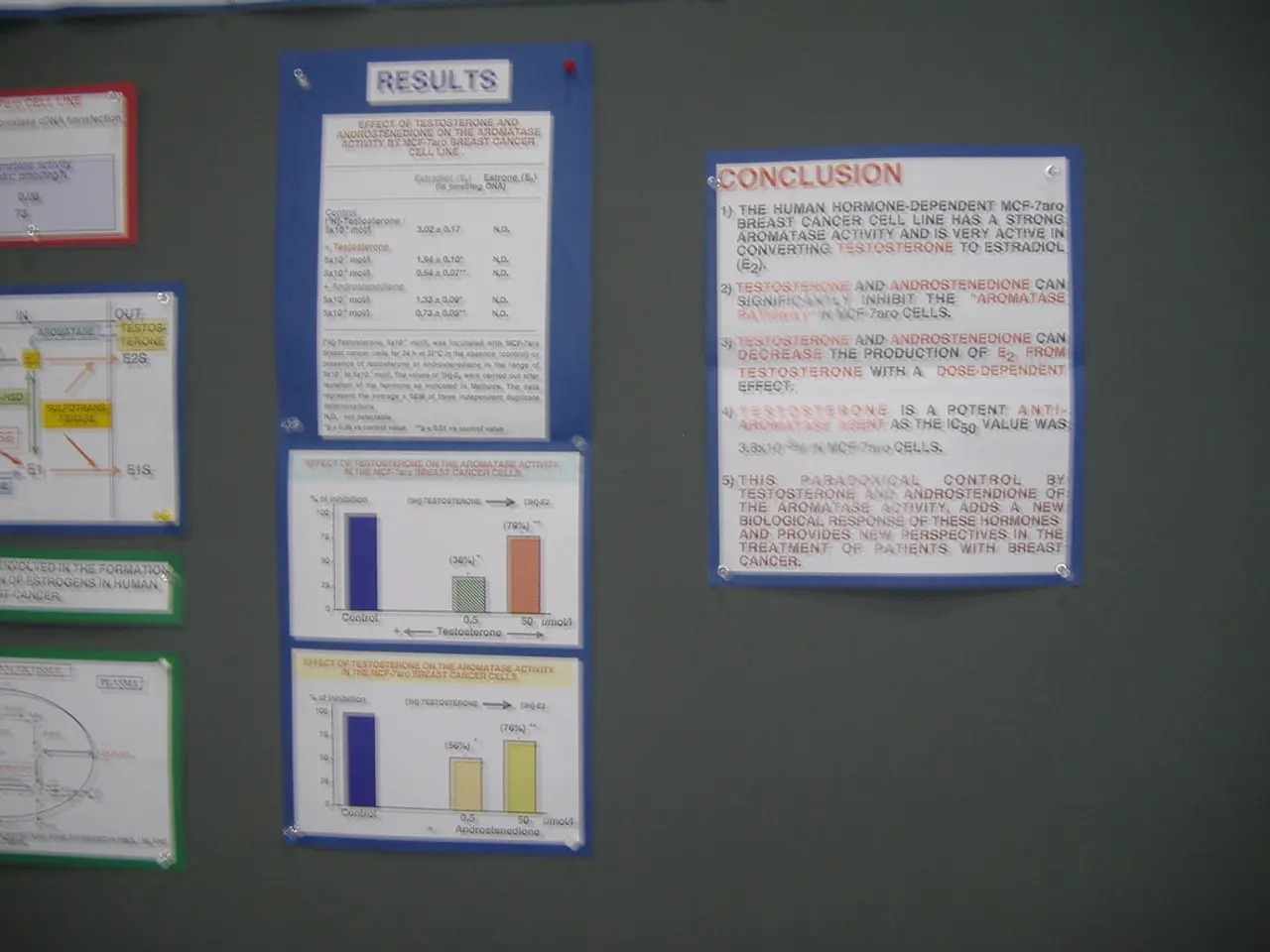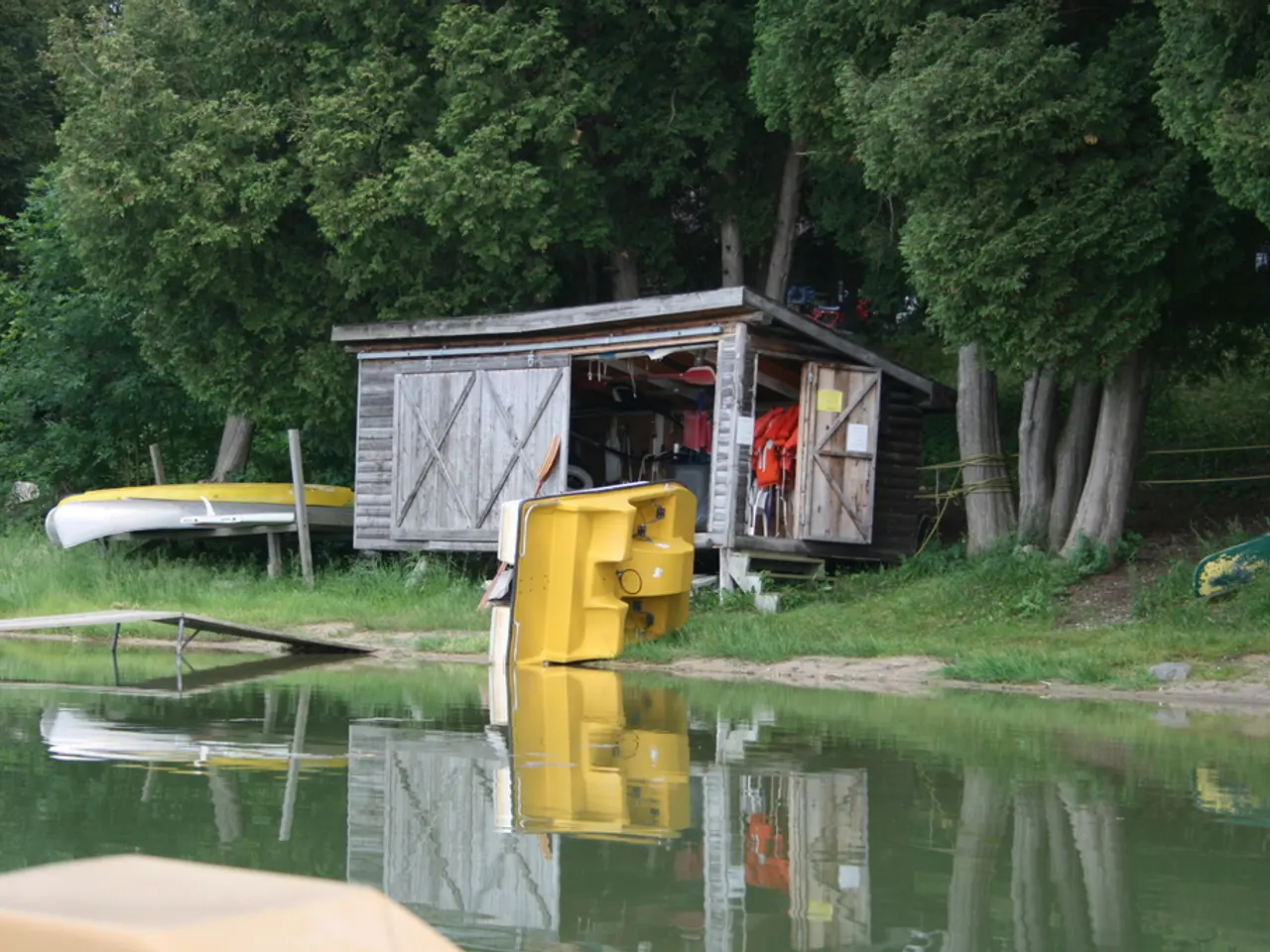Climate Action in Schleswig-Holstein: Cutting Through Bureaucracy for Greener Infrastructure
- *
Allocate distinctive resources among states and local jurisdictions - Authorities Collaborate on Shared Resources in Rural Areas
The state government of Schleswig-Holstein has kicked off a green partnership with its municipalities, on a mission to streamline infrastructure investments and climate neutrality. This new pact promises a whopping 180 million euros per year, annually dispersed over the next 12 years, as disclosed by Finance Minister Silke Schneider (Greens) in the state parliament in Kiel. That equates to a hefty 62.5% of the funds that Schleswig-Holstein will receive from the federal special fund.
With this agreement, Schleswig-Holstein becomes the first federal state to hammer out infrastructure fund sharing with its municipalities. Schneider believes the real measure of success will be whether the funds reach the folks on the ground.
"Keeping it simple, eliminating red tape"
The state's aim is to reduce red tape substantially, making things more manageable for its municipalities. Consequently, reporting obligations are set to see a dramatic reduction. In the words of Schneider, "That's what our municipalities ask for: More trust, less bureaucracy. We should apply the same principles when working with the federal government." Simplified procedures, solid deadlines, and plain language are key elements driving this initiative to ensure funds flow unimpeded.
Setting the funding scale in May, Schleswig-Holstein pegged its piece of the 100 billion euro special fund at approximately 3.5 billion euros.
More agreements on the horizon
Beyond infrastructure funding, Schleswig-Holstein has teamed up with the municipalities for the expansion of full-day care. Under the guidelines, the state will help fund the expansion of full-day care with an impressive 85%. The application pool currently stands at around 240 million euros, with funds for future applications to be provided progressively.
Additionally, the state will boost the refinancing of personnel costs for local carriers in daycare centers to 97.5%, providing relief to the municipalities and supporting the staffing of daycare centers on site.
The poised calm of the CDU's Tobias Koch served to acknowledge Schleswig-Holstein as the first federal state to strike infrastructure fund sharing deals with its municipalities. He called for both the state and municipalities to collaboratively make life better for the people amidst trying budget conditions.
The SPD presses for investments
Prior to this, the SPD faction focused on the state's substantial investment requirements with a motion in the plenary session. The SPD demands tangible investment concepts to tackle the state's key issues, such as daycare centers, schools, housing, and healthcare.
According to the state government's infrastructure report, the state requires 11.68 billion euros in investments by 2040.
"Time to dig in"
SPD faction leader Serpil Midyatli reiterated in the state parliament, "The excavators should roll". While the state's challenges are not new, Midyatli expressed the urgency for the state to advocate for Schleswig-Holstein to gain the most possible benefits from the remaining 400 billion euros in the special fund for infrastructure and climate neutrality.
The FDP supports the deal, but calls for increased funding for full-day care expansion
FDP Caucus Leader Christopher Vogt commended the deal with the municipalities in principle, but insisted that more resources are needed for expanding full-day care. "Current funding isn't enough", he emphasized. The opposition motions at this state parliament session ignited debate and insight at the state government, but Vogt stressed the need for more discussions regarding the financial resources of the municipalities.
The SSW caucus leader, Christian Dirschauer, advocated for flexibility for municipalities, allowing them to decide how to use the funds received. He highlighted the importance of addressing minority issues in ongoing negotiations with the federal government.
In a nutshell, Schleswig-Holstein and its municipalities are partnering up to streamline infrastructure investments and climate projects, aiming to reduce bureaucratic hurdles while addressing the state's financial needs. Political parties are engaging in discussions on the implementation of these funds and investments across various sectors.
- The state government's aim in partnering with its municipalities is to cut through bureaucracy, as indicated by Schneider, who believes that reducing red tape will make things more manageable for the municipalities and stated, "We should apply the same principles when working with the federal government."
- The Green Party's Finance Minister Silke Schneider, in her speech in the state parliament, emphasized the importance of applying simplified procedures, solid deadlines, and plain language in the green partnership with the municipalities to ensure funds flow unimpeded, saying, "Keeping it simple, eliminating red tape."







